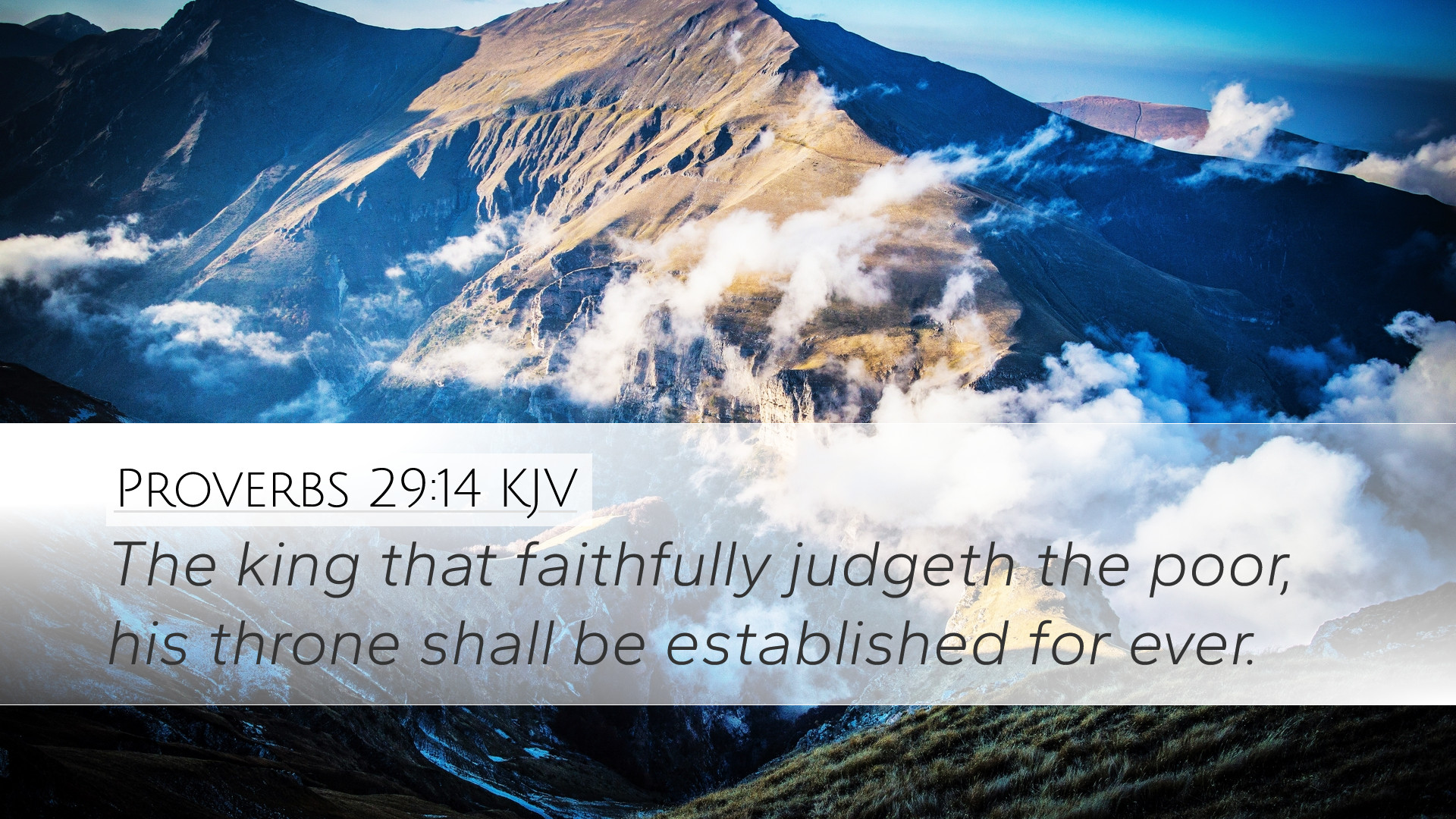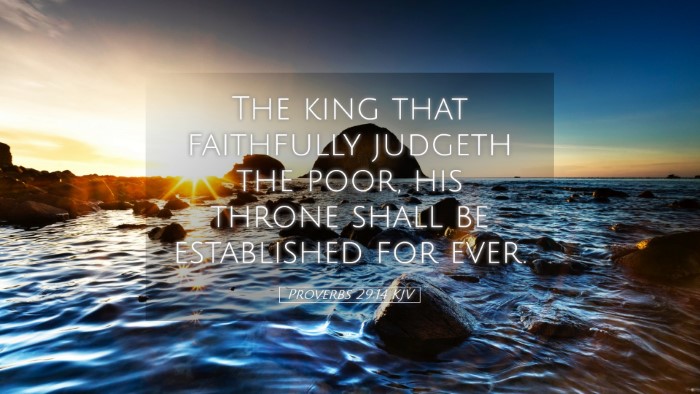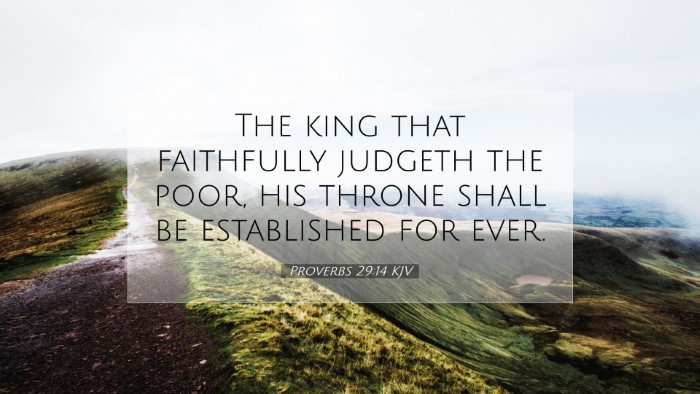Commentary on Proverbs 29:14
Proverbs 29:14 states: "The king that faithfully judgeth the poor, his throne shall be established for ever." This verse holds profound implications for rulers and leaders, establishing a foundational principle governing their authority and the moral obligation they hold towards their subjects.
Interpretation and Insights
The verse emphasizes the importance of justice, particularly in relation to the marginalized and underprivileged. It identifies a significant relationship between the moral righteousness of a king and the stability of his reign. This can be unpacked through various commentaries.
Matthew Henry's Commentary
Matthew Henry rightly notes that "the throne of a king is established by justice." He emphasizes that a king who serves faithfully and judges the poor with integrity is promised an everlasting throne. Henry underlines the notion that leadership involves a responsibility to exercise compassion and fairness in governance.
- Judicial Responsibility: Henry elaborates on the significance of the judicial duty of a king, indicating that a failure to defend the cause of the poor can lead to moral corruption and societal decay.
- Divine Approval: He posits that God's blessing accompanies righteous governance, which results in a stable and prosperous domain.
Albert Barnes' Commentary
Albert Barnes expands on the verse by highlighting the king's role in upholding justice. According to Barnes, "the faithful king, who shows respect and compassion towards the poor, aligns himself with the divine principles of governance." He notes that the eternal establishment of a king’s throne is contingent upon his moral integrity.
- Social Justice: Barnes stresses the necessity for leaders to pursue social justice as a primary concern, cautioning against oppression.
- Leadership Dynamics: He insists that true leadership stems from understanding and addressing the needs of the less fortunate, reinforcing that such qualities are pivotal to the longevity of a leader’s influence.
Adam Clarke's Commentary
Adam Clarke provides profound insights into the textual implications of the verse. He interprets that "to judge the poor with equity is to fulfill one of the highest duties of a ruler." Clarke delves into the concept of divine justice and its reciprocal relationship with earthly governance.
- Equitable Judgement: Clarke underscores the need for impartial and fair judgments that protect the poor, which is indicative of a ruler's righteousness.
- Divine Legitimacy: He further argues that a king’s legitimacy is maintained through acts of compassion and justice, thus linking spiritual principles with earthly authority.
Theological Application
As we reflect on Proverbs 29:14, it becomes clear that this verse is not merely a historical observation; it is a theological assertion relevant to contemporary leadership. For pastors and theologians, the verse calls for a broader examination of the moral and ethical dimensions of authority.
- Leadership Ethics: The ethical implications suggest that leaders in every context (government, church, businesses) must prioritize the welfare of the marginalized.
- Divine Accountability: The text serves as a reminder that leaders will be held accountable by God for their treatment of the poor and their commitment to justice.
Conclusion
In summary, Proverbs 29:14 encapsulates a timeless principle: the establishment of authority is anchored in justice toward the poor. As highlighted through the insights of Henry, Barnes, and Clarke, it reveals the necessity for leaders to govern with integrity and compassion. Such qualities not only honor God but also fortify the foundation of their reign, ensuring its permanence. Thus, the call to justice in this scripture resonates beyond temporal leadership, inviting all to embody the principles of righteousness that God desires in His creation.


